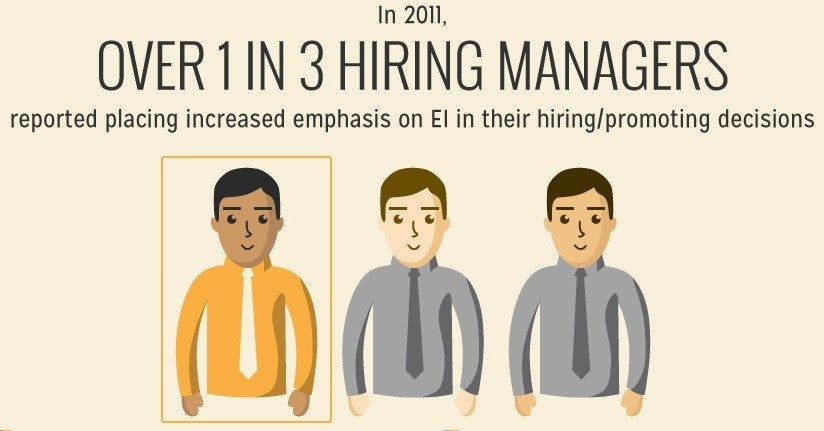Emotional Intelligence and Positive Company Culture
By: SmallBizClub

Logic and the ability to think critically have long been qualities highly-revered and required in most businesses. Someone who can find a solution to a problem without help is more likely to get work done while doing an independent project. But what about when they have to work with others or need to resolve a conflict at work? This requires a completely separate skill set. These skills fit into what is known as emotional intelligence, or EI, and businesses are beginning to find them to be essential to a productive, positive workplace.
Interpersonal and Internal Emotional Intelligence
Emotional intelligence is not a new concept. What many people refer to as people skills or interpersonal skills make up much of what EI is. The ability to give helpful feedback, express concerns in a constructive way, encourage participation, and embrace differences among coworkers leads to mutual feelings of respect and understanding among employees. The better these relationships are, the more each individual’s unique set of skills can be utilized to achieve goals.
Interpersonal skills are, of course, not the only skills required to fit into a productive work environment. High internal emotional intelligence is characterized by willingness to admit mistakes, identify opportunities for personal growth, accept strengths and weaknesses, and manage stress. Being able to set and meet personal goals is an important part of fulfilling your role in an emotionally intelligent group of professionals. Self-regulation helps with this. If you have an allotted amount of time to finish several different tasks, prioritizing and holding yourself accountable is required.
Related Article: How to Make Your Sales Team More Productive
Perhaps the most important part of EI is a sense of empathy. People are people, regardless of context, and mistakes are bound to be made. Acceptance of this fact, seeing the viewpoints of others, and reaching agreements reduces tension and improves company culture.
Positive Company Culture
The unique way a company functions and feels is known as the company’s culture. If a given company has poor, negative culture, employees are much more likely to be unhappy, unmotivated, and consequently unproductive. Managers want to see engagement from their employees, but the majority of U.S. workers don’t fully engage with their work.
(Image by Ohio University)
The most common cause of this is unsatisfactory company culture. If people feel uncomfortable and undervalued they are less likely to excel and surpass expectations. When employees can be relied on to work together and find creative solutions to problems, however, they create a positive culture within the company. This incentivizes employers to hire and reward people with high emotional intelligence: a trend that is catching on.
(Image by University of Maryland)
What You Can Do
If you are considering finding a new job or hiring on new members to your staff, it may be time to improve your EI. Luckily, there are plenty of steps you can take to accomplish this. Since nonverbal signals make up such a large percentage of how people communicate, being aware of your gestures and facial expressions can help people understand exactly what you mean. Thinking before you speak and carefully choosing your words helps with this too, of course. For example, “I think we can improve on this,” is more effective than, “This is bad.”
On the other end, being a good listener is an easy way to improve relationships with coworkers. Making eye contact and showing signs that you understand are important. And the better you are at listening, the more inclined other people are to listen to you. As the saying goes, “Interesting is interested.”
Emotional intelligence is becoming one of the best indicators of how an employee will handle their responsibilities. Managers and job seekers alike have a lot to gain from honing these skills and helping others do the same.
Author: Dylan Ellison is a freelance writer from Boise, ID.
5075 Views
















